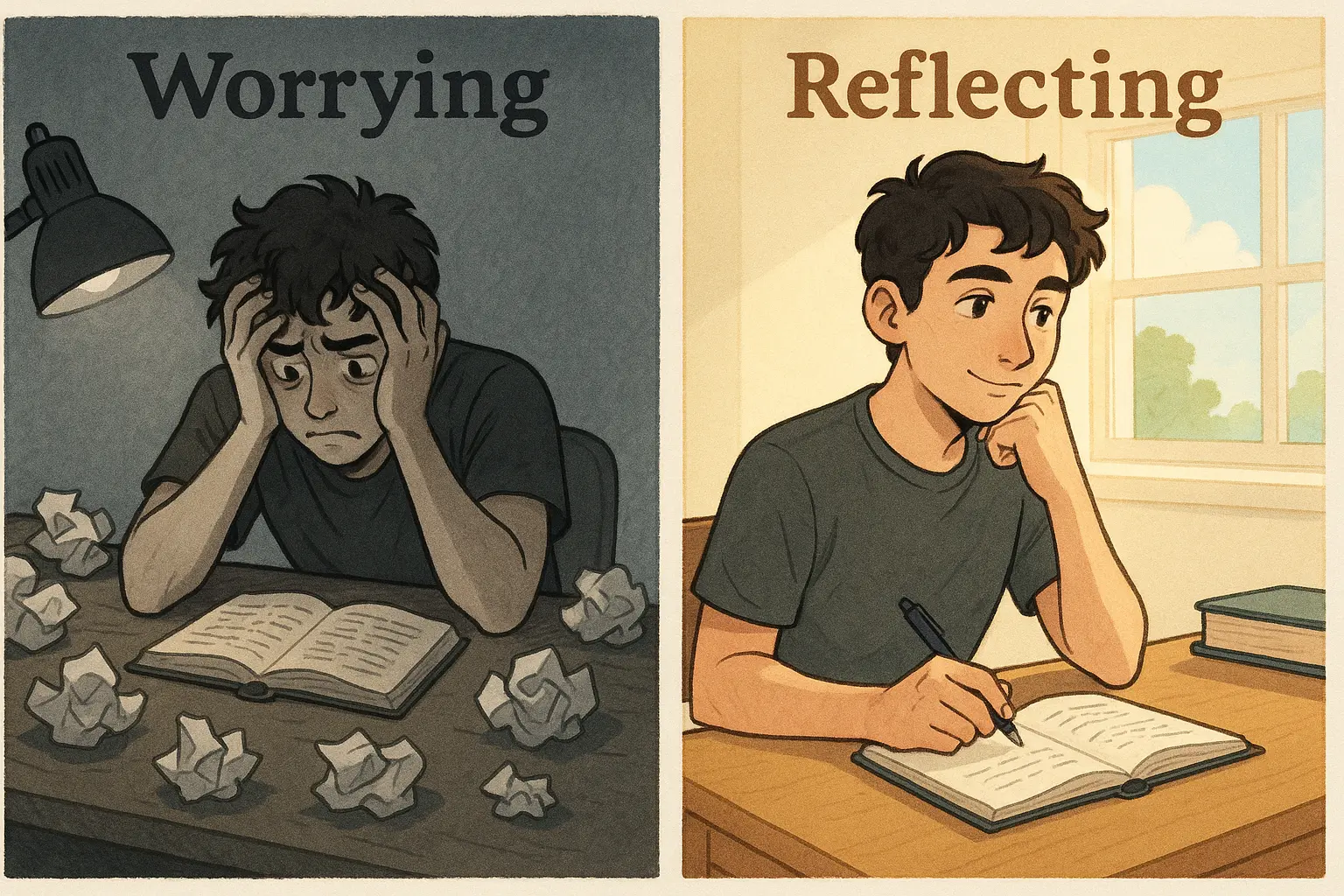
Ever catch yourself worrying in circles after a disappointing result, rehashing what went wrong without actually learning from it? That's the difference between spinning your wheels and making real progress. Reflection is your built-in upgrade system. When you pause, look back at what happened, and plan what to do differently next time, you quietly turn missteps into momentum and good outcomes into repeatable wins.
Done regularly, this simple practice strengthens your judgement in study, work, and everyday decisions. The best part? You don't need fancy forms or elaborate systems. A structured reflection cycle has just three phases, and you can apply it after any task, meeting, or reading session.
Looking Back: What Actually Happened
The first phase is deceptively simple: review what actually took place, not what you wish had happened. This is where many people stumble—they either skip over details or let their emotions colour the facts. Instead, try to be a neutral observer of your own experience.
Helpful prompts for this phase include:
- What did I set out to do?
- What choices did I make along the way?
- What was the actual outcome?
- What surprised me or didn't go as expected?
Keep your notes short and honest. The goal isn't to judge yourself harshly; it's to see clearly what really went down so you can learn from it.
Making Sense: Understanding Why It Matters
Once you've gathered the facts, it's time to look for patterns and explanations. This is the phase where you connect the dots and figure out what your experience is trying to teach you. You're not just listing what happened—you're asking why it happened and what that means for you.
Try these prompts:
- What seems to explain this outcome?
- What assumptions did I make that turned out to be true or false?
- What skills or strategies helped (or would have helped)?
- What can I take away from this that's useful going forward?
This phase is where reflection becomes powerful. You're transforming raw experience into insight, turning a single event into a lesson you can carry with you.
Planning Ahead: What You'll Do Differently
The final phase is where reflection becomes action. You've looked back, you've made sense of things, and now you decide what you'll keep, change, or try next time. This doesn't have to be a dramatic overhaul—small, specific adjustments often work best.
Consider:
- What will I definitely do again?
- What will I change or drop?
- What new approach will I experiment with?
- What support or resources might help me improve?
Write down one or two concrete next steps. The act of committing them to paper (or screen) makes it far more likely you'll follow through when the moment comes.
Sharpen Your Focus Alongside Your Judgement
Used regularly, this lightweight reflection cycle turns experience into a teacher you carry with you everywhere. It builds your confidence and strengthens your ability to make better decisions over time. But if you find your mind wandering during reflection—or if maintaining focus during study sessions is a challenge—you're not alone. That's where scientifically proven plant-powered focus supplements can support your natural attention and help you stay present during the tasks that matter.
Curious how it works? Discover how Brainzyme supports your focus and cognitive performance at www.brainzyme.com.


 DACH
DACH
 FR-BE
FR-BE
 US-CAN
US-CAN


